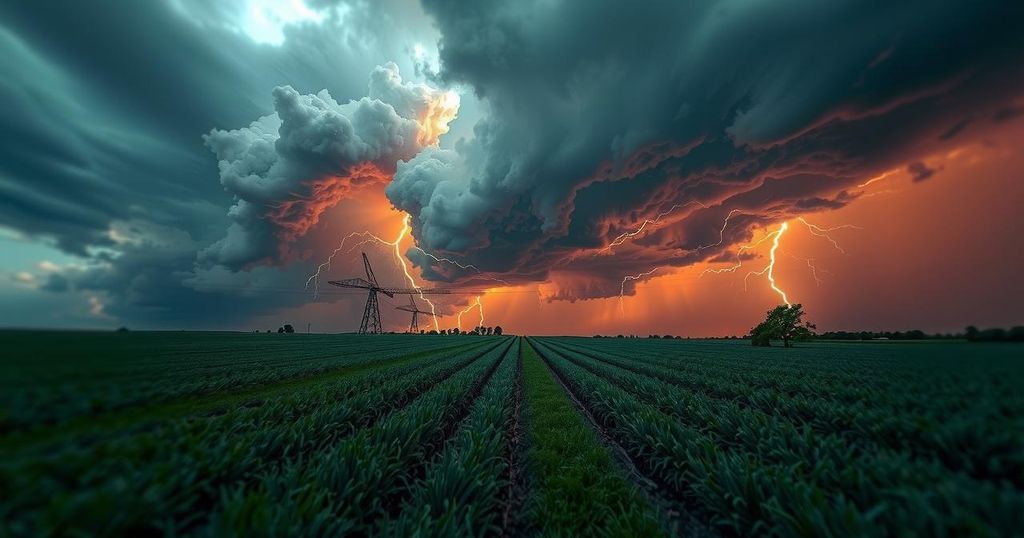A recent study reveals that human-caused climate change has intensified the ten deadliest extreme weather events of the last two decades, resulting in over 570,000 deaths worldwide. Researchers linked the heightened severity of these events, including heatwaves and floods, to global warming, highlighting the urgent need for political leaders to address reliance on fossil fuels.
A recent report has confirmed that human-induced climate change has exacerbated the ten deadliest extreme weather events of the past two decades. These catastrophic events, which include storms, heatwaves, and floods, have predominantly impacted regions in Europe, Africa, and Asia, resulting in over 570,000 fatalities. The analysis, conducted by researchers from the World Weather Attribution (WWA) group at Imperial College London, demonstrates that scientists can now identify the influence of climate change on complex weather phenomena. The study re-evaluated data from major weather events since 2004, the year when the first significant connection between climate change and extreme weather was established. Among the deadliest events, a 2011 drought in Somalia caused more than 250,000 deaths, with researchers attributing the reduced rainfall to climate change. Furthermore, the 2015 heatwave in France claimed over 3,000 lives, as high temperatures were rendered twice as probable due to climate change factors. The report also cites the severe European heatwaves of 2022 and 2023, which resulted in 53,000 and 37,000 deaths, respectively, confirming that the latter event would have been virtually impossible without the influence of climate change. Other extreme events analyzed include tropical cyclones that struck Bangladesh, Myanmar, and the Philippines, as well as devastating floods in India, all of which were heightened in intensity and likelihood due to climate change. Researchers warn that actual mortality figures are likely underreported, particularly in lower-income countries where heat-related deaths are not adequately documented. This study was conducted prior to the recent deadly storms in Spain, highlighting a growing trend of climate-related impacts. Pioneered by Dr. Friederike Otto and Dr. Geert Jan van Oldenborgh, the WWA scientists effectively utilized climate models to simulate and assess the likelihood of extreme weather events under varying climate conditions, determining the effects of anthropogenic climate change compared to a world without industrial emissions. Roop Singh from the Red Cross Red Crescent Climate Centre emphasized the lack of preparedness for the impacts of climate change thus far, warning, “The massive death tolls we keep seeing in extreme weather shows we are not well prepared for 1.3°C of warming, let alone 1.5°C or 2°C.” The findings advocate for increased resilience against climate change associated risks worldwide.
The analysis of extreme weather events and their relation to climate change represents a significant advancement in the understanding of how anthropogenic factors influence natural catastrophes. The World Weather Attribution (WWA) group, established by leading climatologists, employs sophisticated atmospheric modeling to establish causality between specific weather events and global warming. This report shines a spotlight on the alarming statistics concerning the human toll of extreme weather related to climate change, urging political leaders and nations to reevaluate their energy policies and commitments to emissions reduction.
In conclusion, the findings underscore the vital connection between human-caused climate change and the increasing severity and frequency of extreme weather events that lead to devastating loss of life. The report calls for immediate action from global leaders to transition from fossil fuel dependency and to enhance resilience strategies to mitigate the rising risks associated with climate change. The evidence presented serves as a clarion call for awareness and proactive measures to safeguard vulnerable populations against future climate-related crises.
Original Source: www.bbc.com






